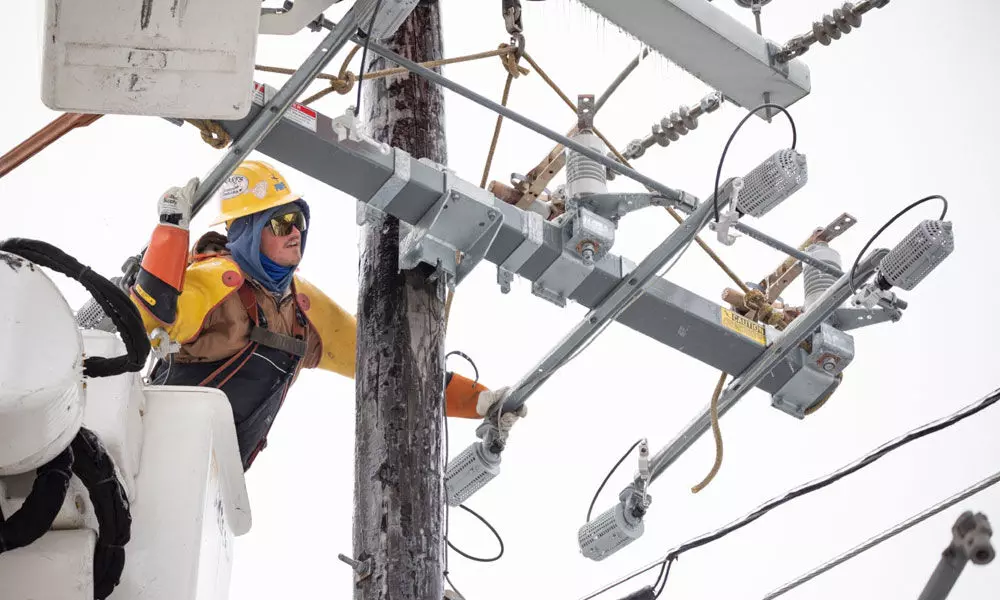Now, could be Buffett's moment to lend America a hand
Berkshire now finds itself better-positioned than any other company to be a bottomless source of capital for funding whatever opportunities present themselves in a decade where infrastructure investments might define the decade’s economy
image for illustrative purpose

Berkshire's property, plant, and equipment net assets have soared over the past 20 years to $193 bn from $2.7 bn
From a new presidential slogan of 'Build Back Better' to an economy strained by supply chain problems everywhere, it's never been more clear that America is consumed with the need to invest heavily across a variety of industries to power growth in the years to come.
That still begs the question of who's in the best position to make those investments. When the need is in the hundreds of billions, if not trillions, of dollars over an indefinite time horizon, the list of potential players shrinks dramatically. Not many companies have the resources to do it in the private sector. Others aren't in the right industries or lack the expertise to make those kinds of investments - think Facebook or Apple. But one company with a famously long view that's been struggling with how to deploy its cash in recent years hinted in its annual letter last week that it's up to the challenge: Berkshire Hathaway Inc.
In his annual letter, Berkshire Chief Executive Officer Warren Buffett noted that two of the company's four crown jewels are infrastructure juggernauts. Burlington Northern Santa Fe Railway Co operates the biggest US railroad by revenue, and Berkshire Hathaway Energy operates power grids, natural gas pipelines and utilities across the US, as well as investing in renewable energy projects.
Thanks in large part to the ownership of those two companies, Berkshire owns more US property, plants and equipment than any other domestic company, with AT&T Inc coming in second. With the acquisition of companies such as BNSF and continued investment in its other businesses, Berkshire's property, plant, and equipment net assets have soared over the past 20 years to $193 billion from $2.7 billion.
As Berkshire has grown, the company's investment tactics shifted as it became more difficult to find deals significant enough to move the needle at the conglomerate. That meant investing in bigger companies and even buying them outright - Berkshire acquired BNSF in 2010. More recently it's also meant allowing cash to pile up on its balance sheet as rising stock prices have made acquisitions less compelling, and buying back its own shares.
One investment tactic of Berkshire's that bore fruit around the 2008 financial crisis was being a liquidity provider of last resort. As the world was falling apart, no other company was in a position to infuse billions of dollars of capital into companies like General Electric Co., Goldman Sachs Group Inc., and Bank of America Corp., and Berkshire was rewarded for its efforts.
But last March, after the pandemic sent the market plummeting, shifts in both monetary policy from the Federal Reserve and fiscal policy from Congress didn't give Berkshire the same kinds of opportunities. If we've entered an era where such policies become more common, it might mean fewer opportunities for multi-billion dollar private-sector bailouts.
That's why infrastructure and fixed investment might become the ideal Berkshire investment opportunity in the years to come. The failure of the Texas power grid during last month's winter storms is just the latest example of America needing to invest in and modernise its electric grid. While utility companies are going to play a role in that, investors in utility stocks are addicted to the high-dividend yields that exist in the sector. So cutting dividends to invest more in infrastructure might make good long-term business sense for the companies but be resisted by their investor base.
Berkshire Hathaway Energy has no such issues. As Buffett noted in his annual letter, BHE pays no dividends, nor has it in the 21 years Berkshire Hathaway has owned it. Continuing to invest in its array of businesses 'will absorb all of BHE's earnings for decades to come,' he wrote. To the extent the reinvestment opportunity exists, neither the resources nor the will should be an issue for Berkshire.
That could make 2020 an inflection point for the company in ways that will only become apparent years from now. Because of the speed and magnitude of the policy response from the Federal Reserve and Congress, Berkshire wasn't able to capitalise on a financial markets panic the way it has in the past. Outside of its stock repurchases, the company was actually a net seller of equities in 2020 as it sharply reduced its holding of bank stocks.
Berkshire now finds itself better-positioned than any other company to be a bottomless source of capital for funding whatever opportunities present themselves in a decade where infrastructure investments might define the decade's economy. (Bloomberg)

